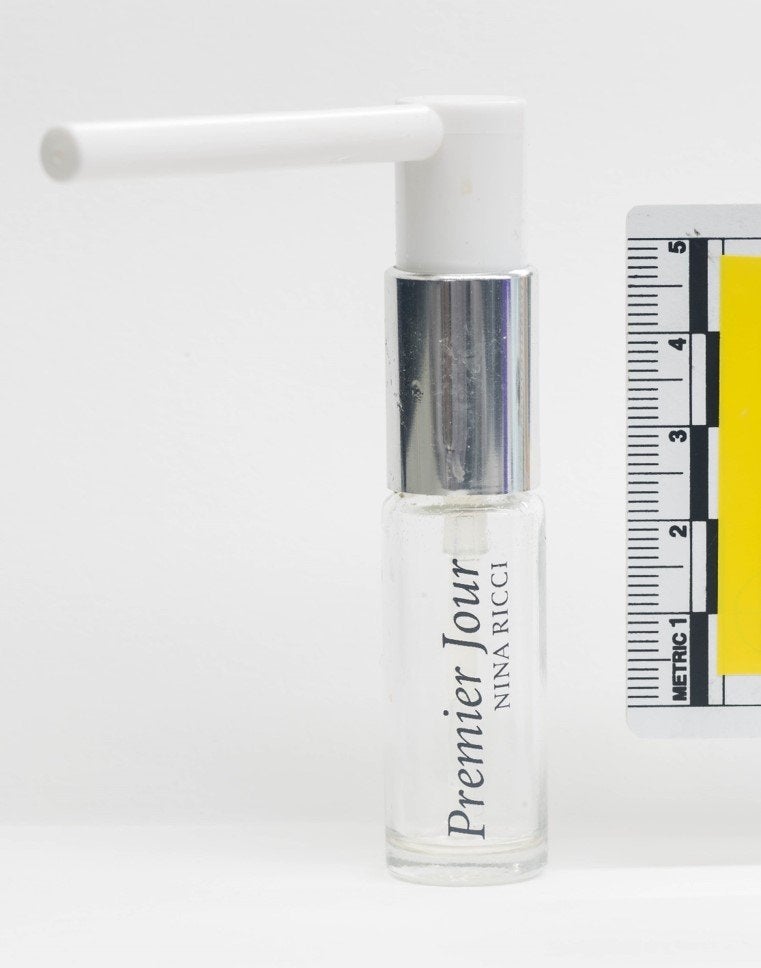Novichok inside bottle used to poison Sergei Skripal ‘could have killed thousands of people’, investigator says
Police officer says 'significant amount' of deadly nerve agent was left inside fake perfume bottle
The amount of novichok inside the bottle used to poison Sergei Skripal could have killed thousands of people, an investigator has said.
Deputy Assistant Commissioner Dean Haydon, who is leading the investigation into the Salisbury attack, said there was a “significant amount” of nerve agent left when the weapon was discovered by officers inside a victim’s home.
When asked how many people it could have killed he told BBC Panorama: “It’s difficult to say, you know, possibly into the thousands … the amount that was in the bottle and the way it was applied to the Skripals’ home address was completely reckless.”
Novichok was smuggled into the UK inside a counterfeit Nina Ricci perfume bottle fitted with a special pump, which was used by two Russian assassins to spread the substance on Mr Skripal’s front door in March.
Police believe the spies then dumped the bottle in a part of Salisbury where it was accidentally picked up by Charlie Rowley on 27 June.
Three days later, he gave the “perfume” to his partner Dawn Sturgess as a present.
The mother-of-three died days after applying the substance directly on to her wrists, while Mr Rowley fell seriously ill after getting novichok on his hands while attempting to attach the applicator.

The government accused Russia of using British streets, parks and towns as “dumping grounds for poison” after the incident, which provoked fresh public health fears following assurances Salisbury had been safely decontaminated.
Sam Hobson, a friend of Mr Rowley’s, told Panorama: “He said he’d found a perfume bottle and he gave it to Dawn. Dawn recognised the brand and said it was a good one. She sprayed it on to her wrists and smelled it and obviously Charlie got a bit on his hands and it was like an oily substance he said and so he washed it off.”
Mr Rowley, 45, was discharged from hospital in July but has since been readmitted for sight problems and meningitis.
Mr Skripal, his daughter Yulia Skripal and a police officer who was the first to enter the home all survived the initial attack after undergoing intensive treatment.
The government scientist who identified the substance used at the Defence Science and Technology Laboratory at Porton Down described his shock at finding novichok.
Professor Tim, whose surname cannot be revealed for security reasons, said: “It was a jaw-dropping moment.
“I went through a number of emotions from disbelief to anger. It’s one of the most dangerous substances known. It’s quite unique in its ability to poison individuals at very low concentrations.”
Police combed through more than 11,000 hours of CCTV to trace the suspected perpetrators, who have been identified by the government as two agents from Russia’s GRU intelligence service.
Mr Skripal was a colonel in the agency before passing secrets to Britain as a double agent, and was jailed for treason in Russia before being handed over to the UK in a 2010 spy swap.
Police have conceded that the “brutal truth” is that if the suspects do not enter an allied country and get caught, the UK will be powerless to bring them to trial, mirroring thwarted efforts to prosecute those responsible for assassinating Russian dissident Alexander Litvinenko.
Mr Haydon said police were still conducting a “live inquiry” into the involvement of further suspects.
“My ambition remains to bring these two individuals and anyone else involved in this attack plot to justice, you know through the British criminal justice system. I will not give up,” he added.
The suspect who entered Britain under a fake passport in the name of Alexander Petrov has been identified as Dr Alexander Yevgenyevich Mishkin, while his accomplice “Ruslan Boshirov” is Colonel Anatoliy Chepiga.
The men appeared on Russian state-owned television to claim they were sports supplement salesmen on a three-day holiday to the UK. They said they travelled to Salisbury two days in a row because of its “internationally famous” cathedral, known “for its 123m spire”.
Investigators at Bellingcat said both officers had been awarded the Hero of the Russian Federation honour and are believed to have met Vladimir Putin.
The Russian president has denied any involvement in either the Salisbury or Amesbury poisoning, and the Kremlin has spread conspiracy theories while accusing the UK of promoting “Russophobia”.
But British ministers have said the operation was approved at the “highest level of the Russian government”.

